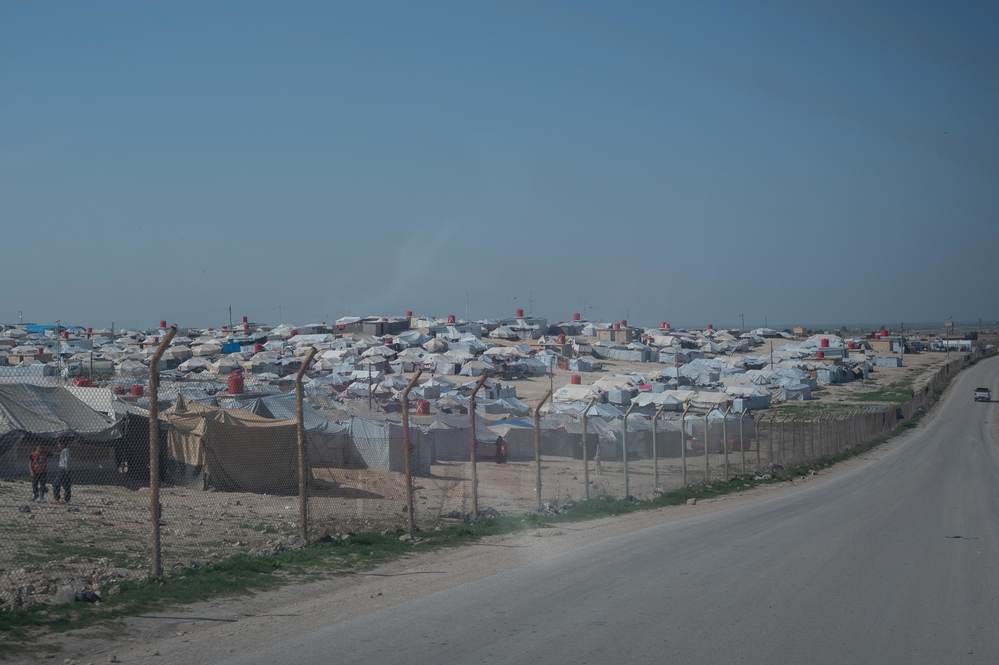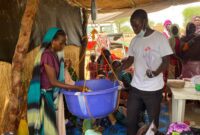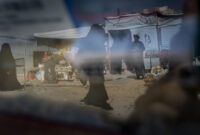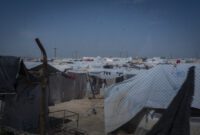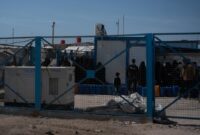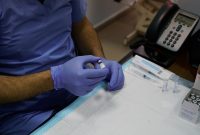No Health Care for a Child
Dr. Reza Eshaghian shares experience working as a Medical Team Leader in Al Hol
Ameena is a nine-year-old girl who lost both her parents. She lives in the Annex in Al Hol camp, Syria, and is taken care of by another sympathetic camp resident.
I first met Ameena in the Doctors Without Borders/Médecins Sans Frontières (MSF) clinic in November. She developed kidney disease back in August and was referred to a hospital in Hassakeh.
Due to a weak referral system with poor flow of information related to the restrictions imposed by the local authorities, children are sent without adults to accompany them, causing major gaps in our understanding of her condition. It was unclear to us what investigations had been done and treatments she received. We didn’t know what type of kidney disease she had. The only thing that was clear is that she received dialysis in the hospital. Dialysis is a life-sustaining, specialised treatment that needs to continue several times a week in order to sustain life in a person without kidney function.
Every time she would come to our clinic, she was carried in a large sheet by two women. When Ameena would arrive to the clinic, she would usually be well overdue for dialysis. The referrals would often be denied and we would have to re-refer day after day until she gets accepted. The local authorities wouldn’t allow an adult to attend with her, and she didn’t speak Arabic.
Dialysis requires hours connected to a machine and a large IV in the neck. Imagine going through such a medical procedure with nobody there to support you or even explain it to you in your own language, at the age of nine. When she realizes she was to be referred, she would cry. She dreaded going back to the hospital. It was clearly a traumatic experience.
Without hearing the details of the referral back from the receiving hospital, we were unable to know what the next steps for her care were. She would often be discharged from the hospital in Hassakeh and show up back her tent in the Annex. She would show up to our clinic a week or so later and we had no information what had gone on with her. We didn’t even know she was discharged.
It was clear the conditions in the camp and the inadequate referral system were not going to help her in the long term. This was also clear to her caretaker, who expressed great deal of concern for Ameena and asked us if we can help to get her out of the Annex and find another family to take care of her. We collaborated with another international humanitarian organization and advocated with the local authorities to find a solution for this girl.
Despite all efforts, unfortunately, she died in her tent in the Annex.
Life sustaining treatment was only one hour away from her. The harsh restrictions imposed on her with the lack of access to health care resulted in months of profound suffering, only to result in her death.
Her story had been mentioned in a speech to the Security Council.
